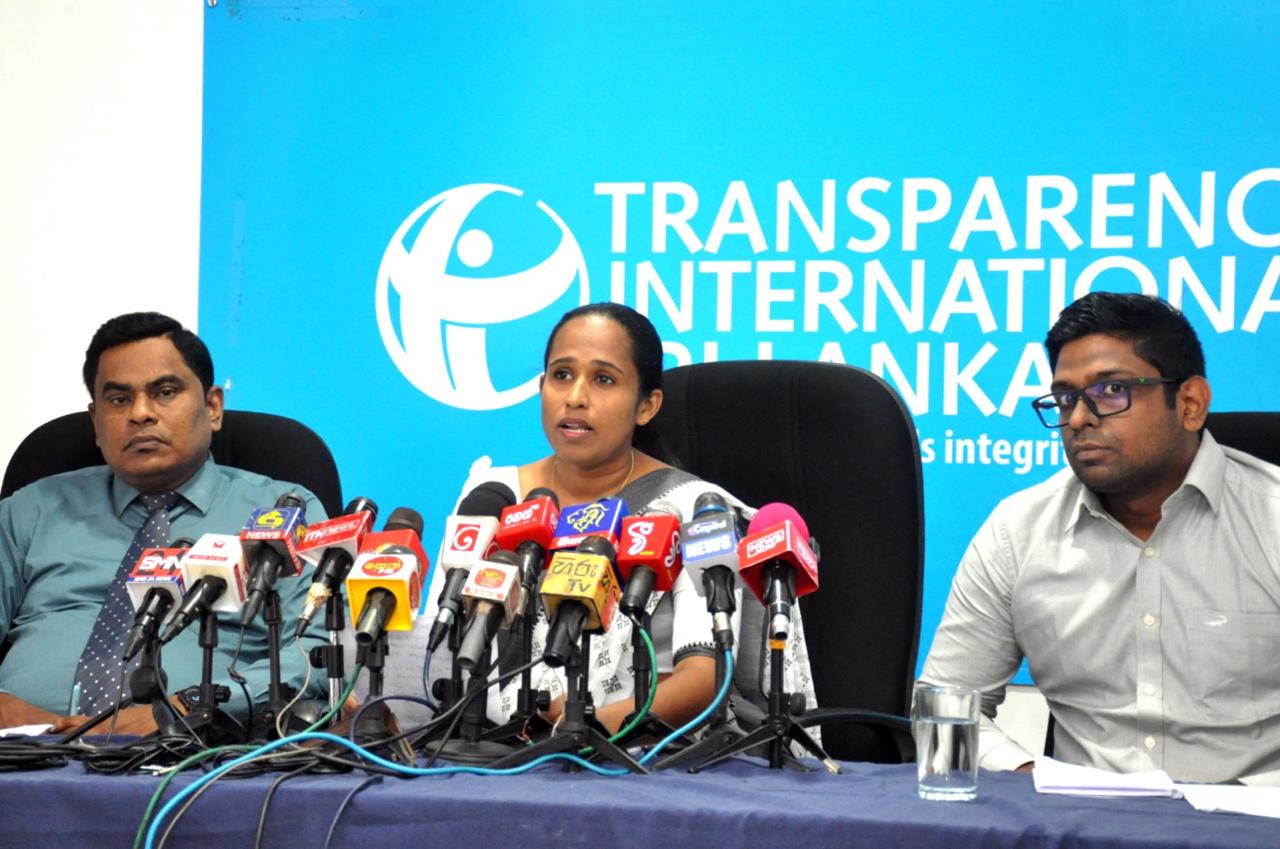
Transparency International Sri Lanka, the local corruption watchdog has said that the majority of appointments made by Anura Kumara Dissanayake including several new governors, ministry secretaries and chairpersons have political affiliations to this party, the National People's Power.
“We have received information about a contesting candidate being appointed to a public service position. A formal complaint was lodged with the Election Commission regarding this. We are closely monitoring the new ruling party for any misuse of public resources during its election campaign. Several new governors, ministry secretaries, and chairpersons have been appointed by the interim government, and some may have political affiliations. We remind them to respect election laws, especially as stewards of public property. In the previous election, we saw significant misuse of power and public vehicles by governors for political purposes,” said Thushanie Kandilpana, National Coordinator of the Programme for the Protection of Public Resources (PPPR) at TISL.
TISL has deployed approximately 160 election observers across all districts to monitor the misuse of public resources during the General Election 2024. Since October 14, TISL has received 70 complaints, with many related to new appointments made in public institutions. Kandilpana was speaking at a media conference in Colombo last week. She said that during the previous Presidential Election, TISL received 117 complaints involving public officials, and the Election Commission subsequently removed over 40 of them from election duties.
TISL received more than 1,000 complaints of public resource misuse in the last election, and investigations into several of these cases are ongoing. “For example, Lanka Mineral Sands Ltd. hired 47 individuals during the Presidential Election period, exceeding the necessary cadre. We are currently following up on this complaint with the Ministry of Industries, and we will not hesitate to initiate legal action if it is not properly addressed,” Kandilpana added.
Dissanayake came to power by vowing to combat corruption and his victory was widely seen by many as a rejection of entrenched corruption and cronyism that have long afflicted the country.
